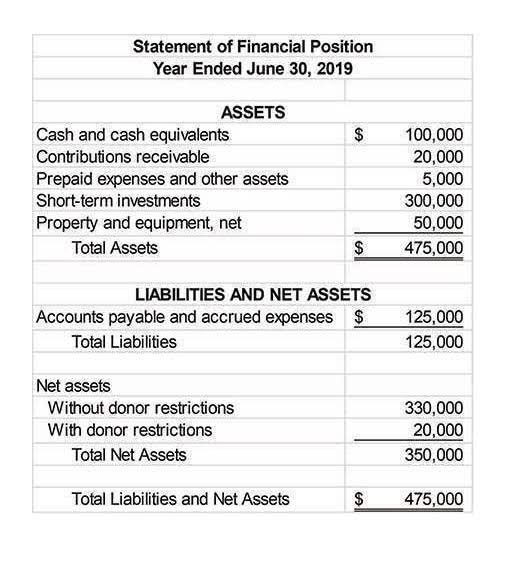
IFRS Accounting Standards are, in effect, a global accounting language—companies in more than 140 jurisdictions are required to use them when reporting on their financial health. Publicly owned U.S. insurance companies, like companies in any other type of unearned revenue business, report to the SEC using GAAP. Accounting principles and practices outside the U.S. differ from both GAAP and SAP. Whether your business requires a traditional audit or accounting and reporting advisory services, Deloitte & Touche LLP’s Audit & Assurance practice works to deliver more than a static snapshot of the past. Since February 2020, there has been a dramatic shift in the operating environment of financial markets as a result of the increased volatility caused by the COVID-19 pandemic.
Workers’ Compensation
Its intuitive quoting system and insurance experts can help you find the right type of coverage for your firm. Just as with IFRS 17, differing timetables and local variations will continue to present an ongoing challenge for insurers throughout 2025 – something that only technology built to accommodate those changes can handle. The FASB issued its exposure draft of targeted improvements in September 2016, and is currently redeliberating based on the comments received. The objective of the amendments is to assist entities implementing the Standard, while not unduly disrupting implementation or diminishing the usefulness of the information provided by applying IFRS 17. IFRS Sustainability Standards are developed to enhance investor-company dialogue so that investors receive decision-useful, globally comparable sustainability-related disclosures that meet their information needs.
- Professional liability insurance in the form of accounting insurance might either limit or exclude coverage related to fiduciary duty.
- As they did, a special insurance accounting standards, known as statutory accounting principles and practices, or SAP, developed.
- Better understand an insurer’s financial health by learning the essentials of insurance accounting.
- Actuarial models need to be fair and unbiased – particularly when it comes to pricing and underwriting.
Insurance Accounting Guide
While AI models will bring much greater productivity in 2025, they also run the risk of introducing new sources of uncertainty, so it’s important that actuaries take time to understand the limitations and assumptions of AI algorithms. Actuarial models need to be fair and unbiased – particularly when it comes to pricing and underwriting. This is important both from the point of view of ethics, as well as compliance with a raft of regulatory requirements – requirements that appear to grow more demanding for insurers by the year.
- An example is when you fail to file taxes or file an extension, and the client now has a penalty because of the late filing.
- IFRS Accounting Standards are developed by the International Accounting Standards Board (IASB).
- Generally, this will result in the grouping of contracts for presentation purposes below the portfolio of insurance contracts level as some companies may do now.
- And US companies are likely measuring their insurance contracts using groupings that do not meet the IFRS 17 grouping requirements.
- Workers’ compensation cost is calculated using a formula that includes your industry, claims history, the number of employees, and the classifications of the employees.
- If your business uses automobiles for professional purposes, it’s mandatory that have you have this coverage unless your business resides in Virginia or New Hampshire.
Government & Public Services

Companies will also have to develop controls around any system and process changes and develop or upgrade existing controls for business as usual after transition. A successful implementation effort will need cross-functional collaboration between IT, actuarial, finance, accounting and operations. IFRS 17 also includes new disclosure requirements aimed to deliver clarity and transparency for users of financial statements. Companies will have to consider the level of detail necessary to satisfy the disclosure requirements, which may result in some companies disclosing information at a more granular level. The required reconciliations help to explain drivers of change in the contract liability and different types of information about the insurance service results.

DeloitteAcct
In the United States, Deloitte refers to one or more of the US member firms of DTTL, their related entities that operate using the “Deloitte” name in the United virtual accountant States and their respective affiliates. Certain services may not be available to attest clients under the rules and regulations of public accounting. For business owners with employees, workers’ compensation insurance is required in every state except for Texas and South Dakota. The cost of coverage depends upon risk exposures, your payroll, and your claims history. Because accountants’ work is low risk compared with other jobs, their workers’ comp premiums tend to be low.

Accelerating your Accounting Change Journey
PwC can help you navigate the existing and new accounting for insurance contracts by insurance and reinsurance entities. Insurers are likely to face major changes as they implement FASB’s new standard on long-duration insurance contracts. By recognizing acquisition expenses before the premium income is fully earned, an insurance company is required to absorb those expenses in its policyholders’ surplus. This appears to reduce the surplus available at the inception of a policy to pay unexpected claims under that policy.
- With the official implementation deadline for IFRS 17 now behind insurers in most countries, many of the systems and solutions introduced for compliance with the new standard have begun to stabilize post-implementation.
- Keep in mind that this policy does not extend professional liability coverage.
- That may still seem a long way off, but the implementation effort required will be significant and insurers should get started now to prepare before the new standards take effect.
- In fact, KPMG LLP was the first of the Big Four firms to organize itself along the same industry lines as clients.
- Professional liability is the most important type of liability policy for CPAs.
Against this backdrop of significant and constant change, technology providers must continue to innovate, leveraging new tools for smarter decision-making, improved risk assessment, and more efficient processes. Work on the Insurance Capital Standard meanwhile continues, as it aims to unify global capital requirements by aligning methodologies for assessing risk, capital resources, and group solvency. While similar in concept to Europe’s Solvency II framework, its structure has a number of key differences, such as a broader risk stress approach, insurance accounting and adjustments in valuation methodology. With the official implementation deadline for IFRS 17 now behind insurers in most countries, many of the systems and solutions introduced for compliance with the new standard have begun to stabilize post-implementation.

